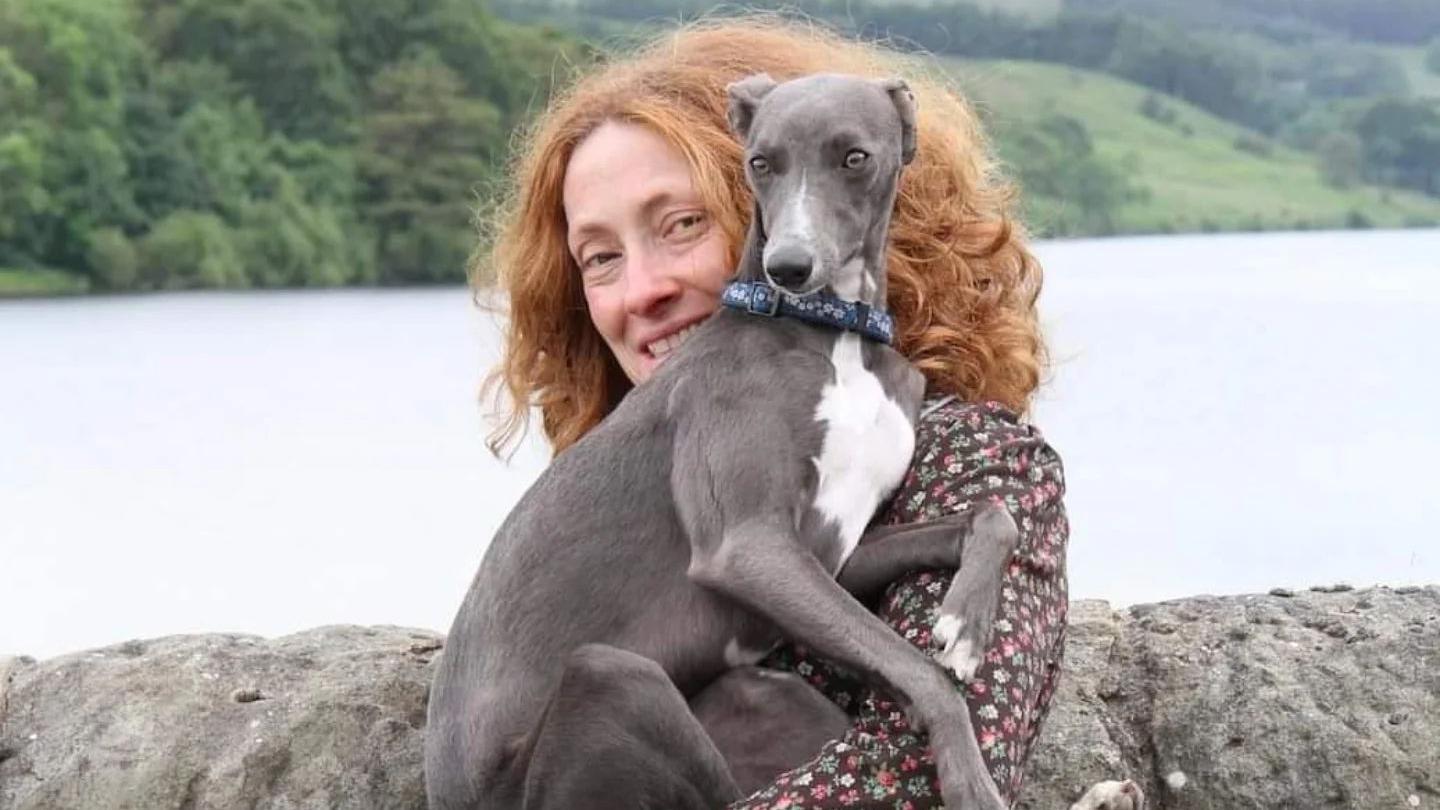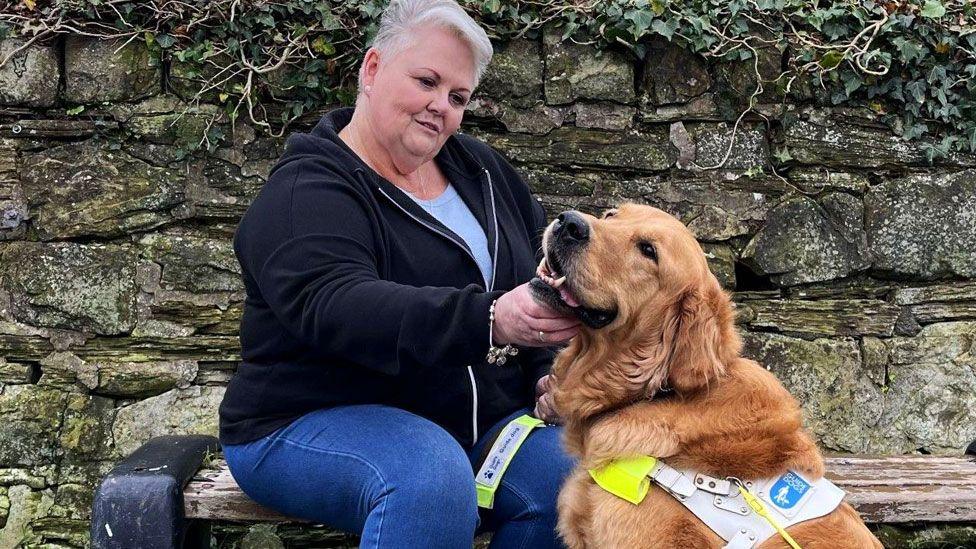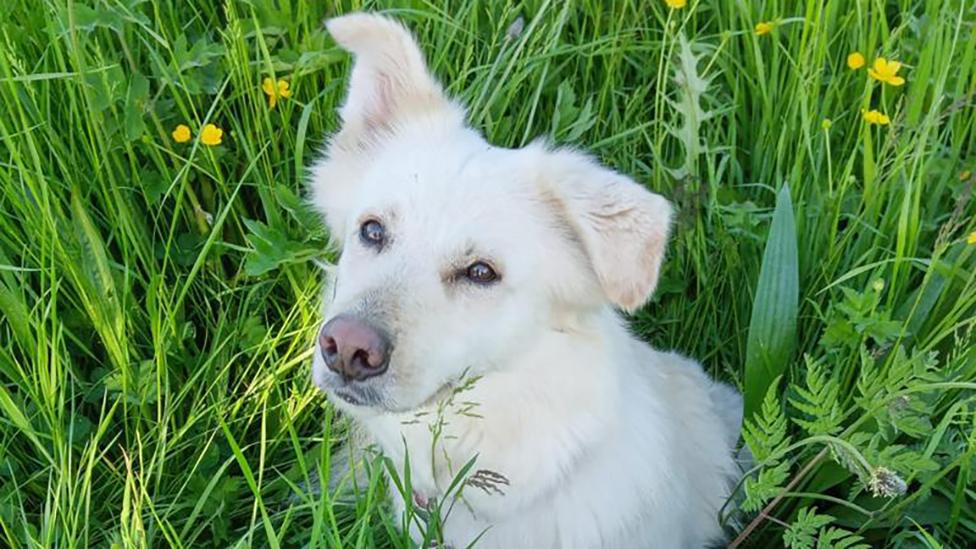'Fireworks are traumatising dogs - I hate them'

Dog trainer Laura Stoker said she hates fireworks, particularly after learning how much they affect animals
- Published
"As beautiful as fireworks are, after learning how much they affect dogs and other animals, I just hate them," says animal behaviourist and trainer Laura Stoker
With bonfire night approaching, many venues will be preparing to launch a multitude of bright, colourful and loud explosives into the sky.
But for Ms Stoker, who co-owns Dog Training Revolution in Leek, Staffordshire, 5 November could not come and go soon enough.
"It is really upsetting, especially because there's nothing we can do about people having fireworks," she said.
Ms Stoker, who was "terrified" of fireworks when she was a young girl, said her nine-year-old cane corso was "alert" but "tolerant" of them.
But she and business partner Rachel Trafford often worked with dogs who could become "incredibly ill" from the loud noises.
While she did not wish to ruin people's fun, Ms Stoker said there should be some restrictions on sales to the public.
She said: "Now you can buy silent fireworks so we've really got no excuse to be using these traumatising ones.
"It's having too much of an impact for them to be as freely available as they are," she added.

Jenny Martinez, who runs Grinshill Animal Rescue, said the noise from fireworks often sounded like "World War Two"
According to the RSPCA, 66% of pet owners who responded to a 2024 survey said backyard firework displays in particular were a "major concern".
The charity said they could make a sound between 120 and 175 decibels, causing many pets to experience fear, anxiety and increased stress levels, which could lead to injury.
Jenny Martinez, who runs Grinshill Animal Rescue in Shropshire, has up to 28 dogs and six cats to look out for.
Due to the rescue's location, she said the noise from fireworks echoed substantially.

Ms Martinez's collie Winnie would often be trembling all night during a fireworks display
Ms Martinez said the animals would be kept safely inside with the radio on to distract them.
"Otherwise some dogs would just go absolutely berserk and try to get through doors to get away from the noise," she added.
About two weeks ago, her collie Winnie was "sat trembling all night" because a display was happening nearby.
"It's quite distressing to watch because you don't know how to comfort them anymore than you physically can," she said. "I think it's a huge problem."

Vet Jon Slattery, pictured with his dog Cara, said the increasing frequency of firework displays was becoming an issue
Veterinary surgeon Jon Slattery, of Best Friends Veterinary in Malvern, Worcestershire, said dogs and horses were particularly affected by fireworks.
"The worst one I had was a German shepherd who was scared and jumped through a glass window, cutting itself," Mr Slattery added.
He said it was becoming more of an issue due to the increasing number of cultural and religious events being celebrated.
"That's not including fireworks being sold to, dare I say it, teenagers," he added.
Mr Slattery said he was a "big advocate" of shops only selling silent fireworks to members of the public.
The BBC has suggested a number of measures that can be taken to help pets during firework displays:
Building a den
Distracting animals with treats or toys
Block out noise by closing windows and turning on the TV or radio
Comforting pets if they need it
Ms Stoker also suggested desensitisation training to help animals get over their fears, while Mr Slattery urged people to speak to vets to see if their pets needed anti-anxiety medication.
Get in touch
Tell us which stories we should cover in Staffordshire
Follow BBC Stoke & Staffordshire on BBC Sounds, Facebook, external, X, external and Instagram, external.
- Published5 November 2024

- Published4 November 2024

- Published7 July 2023
